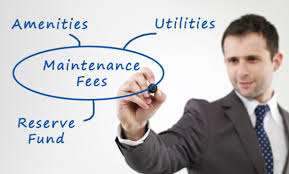 August 2022
August 2022
Condo fees are withheld for many reasons. Some may not be aware they owe money. Perhaps management’s contact information is outdated. Late fees may have been ignored or not communicated. Owners may choose not to pay because they feel the corporation is not doing what they should, or are in a dispute of some sort with the corporation.
Financial difficulty may be the most common reason for falling into arrears and the most difficult to fix. Someone who has lost their job or run out of money has limited options. An individual hoping to rent out their unit may be unable to find paying tenants or forced to collect less in rent than what they pay for a mortgage. Their choice to not pay condo fees may be an attempt to conserve cash.
High-end communities are not immune. Professional athletes, unable to access their unit because of pandemic border restrictions, likely felt justified in withholding fees.
Regardless of the reason, withholding or not paying condo fees is not legal.
Condo living is based on individuals, acting together, being responsible for managing their shared home. There are many benefits to this approach. The flip side of this arrangement is that when one or more owners fail to make their payments, funds have to be made up by the collective. In a larger building a few nonpayers may be manageable. In a small building even one nonpayer can be devastating to the group.
Condo fee arrears are a building-wide problem. Every nonpayer means others must pay more. No condo board or manager has authority to obligate owners to subsidize others. Collecting what is owed is an obligation of every condo director.
What do you do?
 Prompt collection of outstanding fees can reduce – or eliminate – the overall loss to the corporation. Condo boards and management are expected to initiate collection proceedings to avoid financial losses. If an exception is made for one owner, all are entitled to the same arrangement. Too many “exceptions” places a corporation in the unmanageable position of helping owners but failing to maintain the corporation due to lack of funds. Preferential treatment or favouritism to some owners is not a viable option.
Prompt collection of outstanding fees can reduce – or eliminate – the overall loss to the corporation. Condo boards and management are expected to initiate collection proceedings to avoid financial losses. If an exception is made for one owner, all are entitled to the same arrangement. Too many “exceptions” places a corporation in the unmanageable position of helping owners but failing to maintain the corporation due to lack of funds. Preferential treatment or favouritism to some owners is not a viable option.
Direct communication is an inexpensive first step.
Find out if payment has been lost in the mail, or notice of payment due was not received. Vacation or hospitalization may explain nonpayment. A mutually agreeable payment plan may offer an easy solution.
For any owner not responding to inquiries, and those who have no funds to make payment, the condo lien process offers a way to protect owners from being responsible for someone’s inability or unwillingness to pay. Delays in proceeding increase the likelihood that collection in full will not occur.
If you own a condominium, consequences are severe for those unable or unwilling to pay their fees. You can lose your home.







